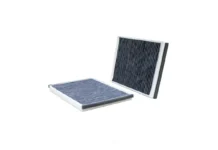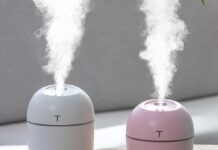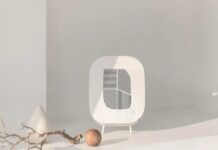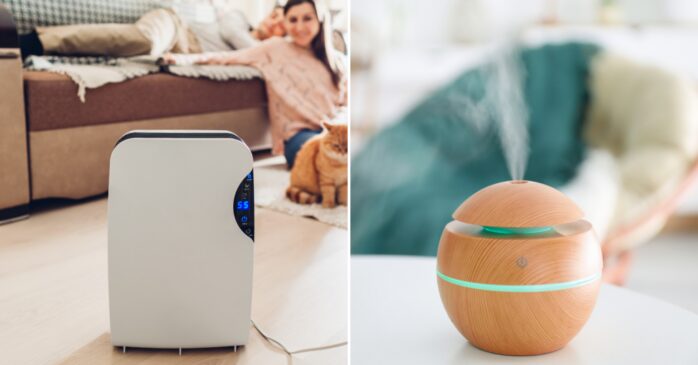
As a homeowner, ensuring indoor air quality is essential for maintaining a healthy living environment. With respiratory issues on the rise and allergens lurking around every corner, it’s crucial to understand the difference between air purifiers and humidifiers before deciding which one is right for you.
These two devices serve unique functions in controlling moisture levels and eradicating harmful airborne contaminants. In this blog post, we’ll explore the difference between air purifiers and humidifiers by examining their key differences, features, and benefits. You can also visit Hurliman Heating to learn about the options available for air purifiers on the current market.
Hopefully, you’ll be better equipped to make an informed decision about improving your home’s environment for everyone there.
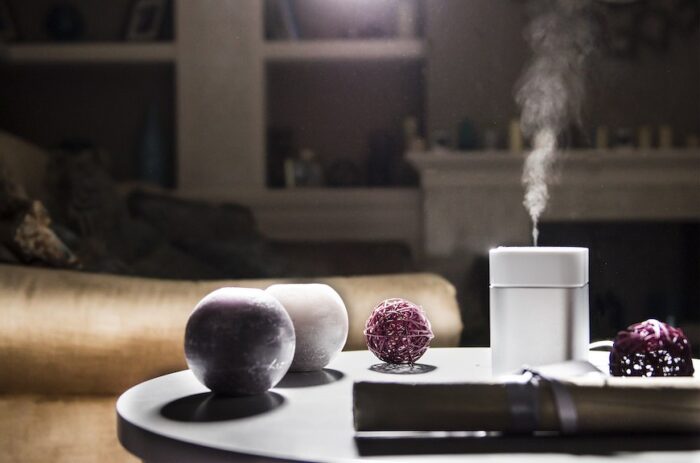
Understanding Air Purifiers And Humidifiers
Purifying Vs. Moisturizing
Purifying and moisturizing are two essential processes to maintain a healthy living environment, especially for homeowners concerned with indoor air quality. Air purifiers focus on purifying the air by removing contaminants such as allergens, dust particles, pet dander, and viruses or bacteria.
For example, let’s say you live in an area with high levels of air pollution due to nearby construction or heavy traffic. Investing in an efficient air purifier can help eliminate airborne pollutants that could cause respiratory discomfort or health issues over time.
In contrast, if you reside in a region where winters are harsh and leave the indoor environment arid, using a humidifier will add moisture back into the space and prevent problems like dry skin and irritated nasal passages.
Function And Purpose
Air purifiers and humidifiers are designed to improve your home’s air quality but have different functions and purposes. Air purifiers remove impurities such as pet dander, pollen, dust, viruses, bacteria or mold.
They clean the air you breathe by drawing it into a filtration system that traps airborne particles before blowing clean air back into the room. Humidifiers, on the other hand, add moisture to dry indoor air.
Dry environments can lead to respiratory issues such as sore throat or coughing and trigger allergies or asthma attacks for some people.
Both devices are essential in ensuring your indoor environment is healthy and comfortable.

Differences Between Air Purifiers And Humidifiers
Air purifiers are available in various sizes and types, including portable units and whole-house systems. They can effectively target pollutants like dust mites and pet allergens, promoting a healthier living environment. Humidifiers, on the other hand, offer different types such as evaporative, ultrasonic, and steam humidifiers, catering to diverse needs and preferences. By adding moisture to the air, humidifiers can alleviate dry skin, chapped lips, and sinus discomfort. Proper maintenance, such as regularly cleaning filters and tanks, is essential for both air purifiers and humidifiers to ensure optimal performance and longevity. It’s also important to consider factors like room size, noise level, and energy consumption when selecting these devices.
Output Differences
Air and humidifiers serve different purposes, influencing their output differences. While air purifiers are designed to clean the air by removing pollutants such as dust, pollen, pet dander, virus, bacteria, and mold from the environment, humidifiers aim to increase moisture levels in dry environments.
The output of an air purifier is typically clean air with fewer airborne contaminants that can trigger respiratory issues like asthma or allergies. In contrast, a humidifier increases a room’s humidity levels, making it ideal for individuals suffering from dry skin or breathing difficulties caused by dry air.
The output of both devices varies depending on how well they’re maintained: Air purifiers require regular filter changes while humidifiers need water refills frequently.
Maintenance Differences
Air purifiers and humidifiers require different maintenance practices to ensure they function optimally. Air purifiers typically need less maintenance since they do not use water, but they have filters that need replacing every few months or so, depending on usage.
On the other hand, humidifiers require frequent cleaning to prevent mold and bacteria growth in the water tank.
Some humidifiers also require the replacement of filters or cartridges after a certain period.
By understanding the differences in maintenance needs between air purifiers and humidifiers, homeowners can make informed decisions when choosing which appliance best suits their indoor air quality needs without worrying about unnecessary expenses or potential health hazards caused by poor maintenance practices.
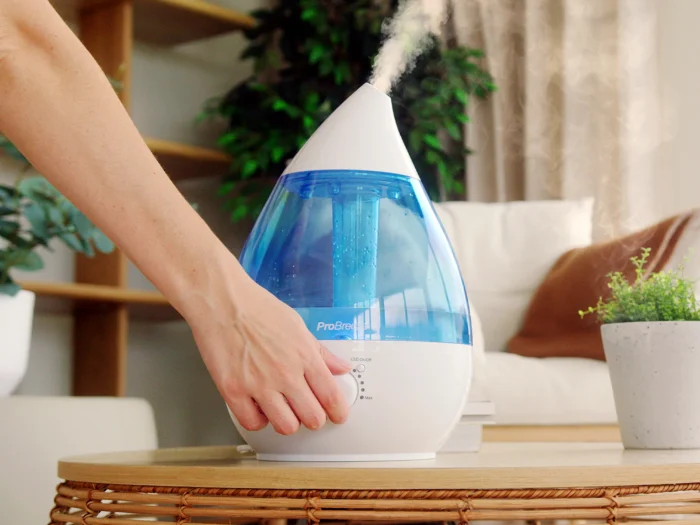
How To Choose Between Air Purifiers And Humidifiers
Assess your air quality needs by considering the presence of allergens, respiratory issues, and indoor air pollution before deciding if you require a humidifier or an air purifier.
Assess Your Air Quality And Health Needs
Assessing your indoor air quality and health needs is essential before deciding whether you need an air purifier or a humidifier.
If you’re dealing with dry air that triggers skin irritation, nosebleeds, and sore throats, then a humidifier might be the best fit. On the other hand, if allergens like dust mites, pet dander, viruses, bacteria, or mold are causing breathing difficulties and increased allergy symptoms even after cleaning regularly and maintaining good hygiene – then an air purifier may be more beneficial.
Consider Your Budget
It’s important to consider your budget when deciding between an air purifier and a humidifier. While both can offer health benefits, they vary in price range. Air purifiers are more expensive upfront due to their advanced technology for filtering airborne contaminants such as dust and pollen, which require replacement filters over time.
Before making a purchase, consider the size of the room you wish to use it in and the features offered by each product within your budget range. Remember that maintenance costs should also be included in your calculations.
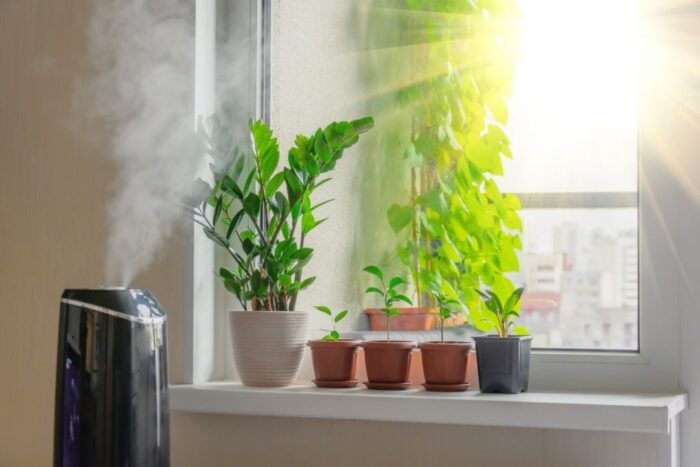
Conclusion
In conclusion, choosing between an air purifier and a humidifier comes down to your indoor air quality needs. Air purifiers are great for removing airborne contaminants like allergens, while humidifiers add moisture to the air, helping with dry skin and respiratory issues.
It’s important to assess your health needs and budget before deciding. Keep in mind that both devices require maintenance to ensure optimal performance.

